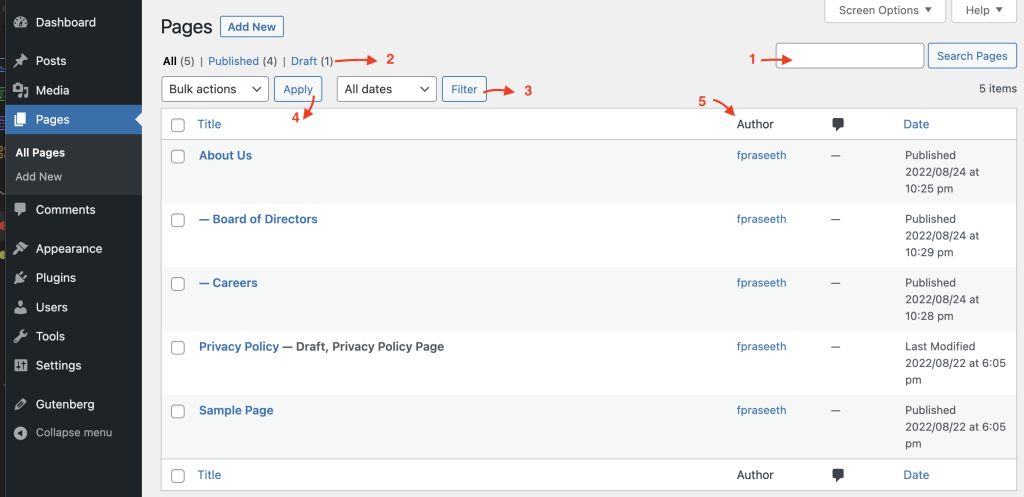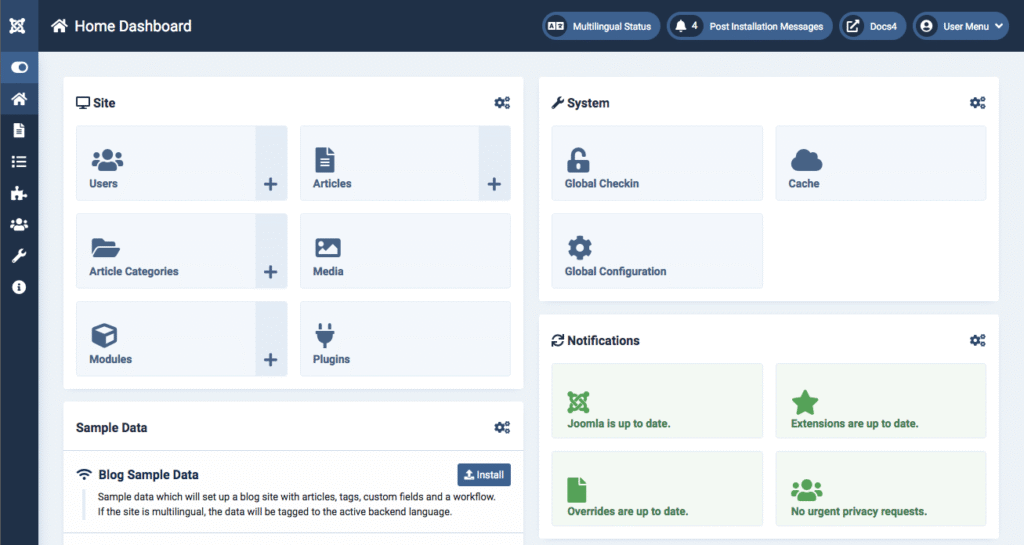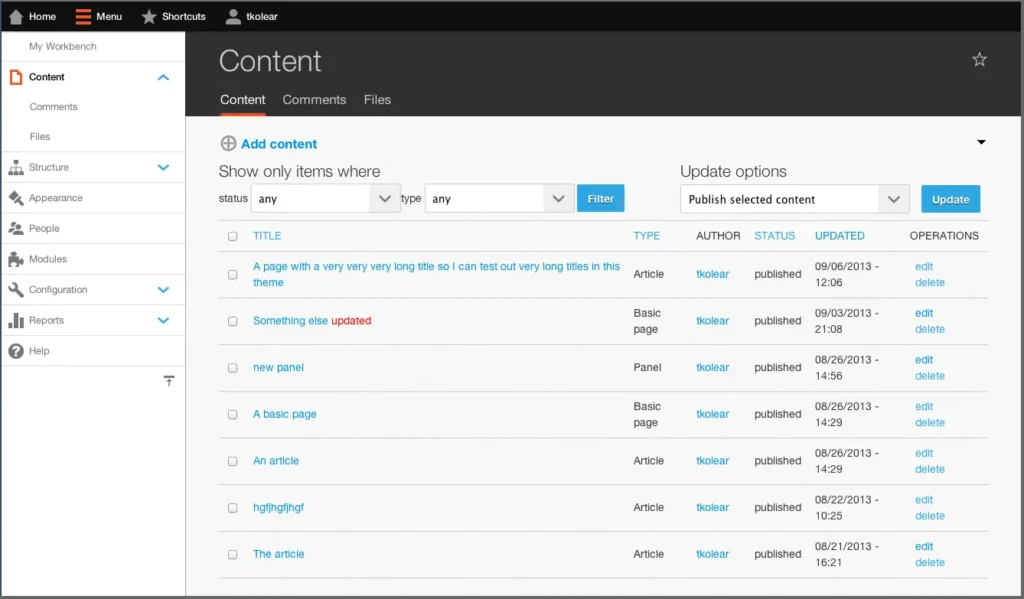Choosing the best CMS for website creation is a critical decision when building your site. A reliable Content Management System (CMS) makes managing and customizing your website easier, while ensuring its performance and security. WordPress, Joomla, and Drupal are the top contenders, each offering unique features that suit different needs. To find the best CMS for your project, it’s essential to compare the strengths and weaknesses of each platform.
Why Choosing the Right CMS is Crucial
Choosing the wrong CMS for your website can result in slow performance, security vulnerabilities, and costly maintenance. Your CMS affects how easily you can manage and update content, the customization options available, and how well your site performs across devices and browsers. Therefore, it’s essential to make an informed decision based on the unique needs of your website.
1. WordPress: The User-Friendly Giant

WordPress is by far the most popular CMS, powering over 40% of websites worldwide. Known for its simplicity, flexibility, and extensive plugin ecosystem, WordPress is often recommended for beginners and those who want to create a website quickly and with minimal hassle.
Advantages of WordPress:
- Ease of Use: WordPress is designed for non-technical users. Its intuitive interface allows you to create and manage a website with ease. Whether you’re building a personal blog, portfolio, or business site, WordPress makes it easy to get started.
- Wide Range of Themes and Plugins: WordPress has thousands of themes and plugins, which means you can easily customize your site’s appearance and functionality without needing to write any code. There’s a plugin for just about everything, from SEO to social media integration, making it the most flexible CMS for general users.
- Great for SEO: WordPress is SEO-friendly right out of the box. You can easily install plugins like Yoast SEO to optimize your content for search engines. This makes it a top choice for those looking to improve their visibility on search engines.
- Vast Community and Support: As the most popular CMS, WordPress has a large community of developers, designers, and enthusiasts. This means you’ll have no shortage of support, tutorials, and resources to help with troubleshooting and customization.
Disadvantages of WordPress:
- Security Concerns: Due to its popularity, WordPress is a frequent target for hackers. While regular updates and security plugins can mitigate these risks, WordPress sites can be vulnerable if not properly maintained.
- Performance Issues with High Traffic: For larger websites or those expecting high traffic, WordPress can become sluggish unless optimized properly. Additionally, some plugins may conflict with each other, causing performance issues.
- Limited Scalability: While WordPress is fantastic for small to medium-sized websites, it can be less efficient for large-scale enterprise websites. It may not have the same level of scalability or customization as other CMS platforms like Drupal.
2. Joomla: The Middle Ground CMS

Joomla is a versatile CMS that lies between WordPress and Drupal in terms of complexity. It offers more flexibility than WordPress but is easier to use than Drupal, making it a good choice for users who want a balance of customization options and ease of use.
Advantages of Joomla:
- Flexibility: Joomla allows for more control over your website than WordPress. It offers a wide range of extensions for functionality and customization, making it a good choice for users who need something more complex than what WordPress provides.
- Good for E-Commerce: Joomla has strong support for e-commerce websites. Extensions like VirtueMart or J2Store allow you to easily create an online store, and it integrates well with various payment gateways.
- Content Management: Joomla excels at handling complex content structures. If you have multiple content types (such as news articles, blogs, events, and user-generated content), Joomla’s flexible content management system can handle it all.
- Multi-Language Support: Joomla comes with built-in multilingual capabilities, making it a great option for businesses and individuals who need to create websites in multiple languages.
Disadvantages of Joomla:
- Learning Curve: While Joomla is more user-friendly than Drupal, it’s still more complex than WordPress. Beginners may find the platform somewhat challenging, especially when it comes to installing and configuring extensions.
- Smaller Plugin Ecosystem: Joomla doesn’t have as vast a selection of plugins as WordPress. While it does have plenty of options for customization, the Joomla plugin market is smaller, which can limit functionality for certain website types.
- Limited Themes: Joomla’s theme library isn’t as extensive as WordPress’s. While many high-quality themes are available, users may find themselves needing to create custom themes if they want something truly unique.
3. Drupal: The Powerhouse for Complex Websites

Drupal is a powerful CMS designed for developers and advanced users who need maximum control over their websites. It is widely regarded as one of the most secure and scalable CMS platforms, making it ideal for large enterprises, e-commerce stores, and government websites.
Advantages of Drupal:
- Customizability and Flexibility: Drupal offers unparalleled customization options, giving developers complete control over the site’s functionality and design. It’s especially well-suited for building highly complex websites that require custom coding.
- Scalability: Drupal is built for scalability, making it the go-to CMS for large websites and high-traffic sites. It can handle large amounts of data and complex content structures with ease, so it’s perfect for enterprise-level websites.
- Security: Drupal is known for its robust security features, making it the preferred choice for websites where security is a top priority. Government agencies and large corporations often use Drupal because of its high-level security measures.
- Multi-User Capability: Drupal excels in multi-user environments, where different people need to have access to different parts of the website. It’s a great option for organizations that need complex permission systems for different user roles.
Disadvantages of Drupal:
- Steep Learning Curve: Drupal is not beginner-friendly. It requires more technical expertise and understanding of web development. If you don’t have prior experience with web development or coding, learning Drupal can be a challenge.
- Limited Themes and Modules: While Drupal offers a range of themes and modules, they are fewer compared to WordPress and Joomla. Customization often requires coding, which may not be ideal for those looking for a quick solution.
- Time-Consuming Setup: Setting up a website with Drupal can take a lot of time and effort due to its complexity. Unlike WordPress and Joomla, Drupal doesn’t offer quick setup wizards, meaning it might take a while to get everything working smoothly.
Which CMS Should You Choose?
- Choose WordPress if you are looking for an easy-to-use platform with a vast selection of themes, plugins, and strong community support. It is best for bloggers, small businesses, and personal websites.
- Choose Joomla if you want a balance between ease of use and customization. It is well-suited for users who need more advanced features than WordPress but don’t want the complexity of Drupal.
- Choose Drupal if you are building a large, complex website that requires high-level customization, security, and scalability. It is ideal for large businesses, government sites, and enterprise-level applications.
Conclusion
Selecting the right CMS is crucial to the success of your website. WordPress, Joomla, and Drupal each offer distinct advantages and drawbacks, so it’s essential to assess your website’s needs carefully before making a decision. Whether you prioritize ease of use, scalability, or customization, there’s a CMS out there that fits your goals. By understanding the strengths and weaknesses of WordPress, Joomla, and Drupal, you can make an informed decision and build a website that will thrive for years to come.
FAQs:
- What is the easiest CMS to use?
WordPress is considered the easiest CMS to use, especially for beginners. It offers a simple interface, numerous plugins, and a large support community. - Can Joomla be used for e-commerce websites?
Yes, Joomla has extensions like VirtueMart and J2Store that make it suitable for e-commerce websites. - Is Drupal better than WordPress?
Drupal is more powerful and flexible than WordPress, but it requires a higher level of technical expertise. It is ideal for complex, large-scale websites, while WordPress is better suited for simpler websites. - Which CMS is best for SEO?
WordPress is generally regarded as the best CMS for SEO due to its built-in SEO-friendly features and plugins like Yoast SEO. - Can I switch between CMS platforms?
Yes, it is possible to migrate your website from one CMS to another, but it can be a time-consuming process that may require professional assistance. - Which CMS is most secure?
Drupal is often considered the most secure CMS, especially for websites with high security requirements, such as government or enterprise websites.


